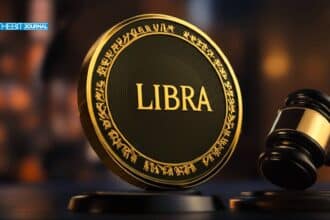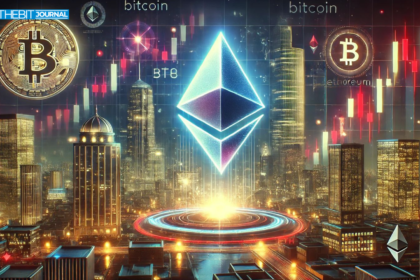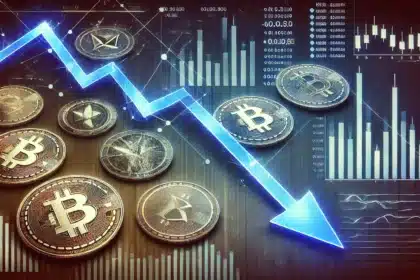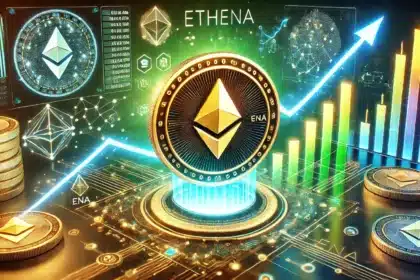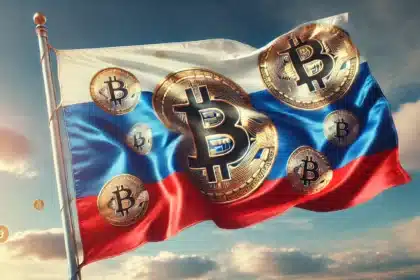As Bitcoin pushes closer to the $100,000 threshold, fueled by rising inflation fears and escalating U.S.-China tariff tensions, misinformation has flooded social media platforms. In particular, a viral rumor has taken hold: that BlackRock executive Jay Jacobs revealed China is selling US treasuries to buy Bitcoin and gold.
The claim spread rapidly across X (formerly Twitter) after Jacobs’ appearance on CNBC’s Squawk Box Asia last weekend. Several crypto-focused X handles, promoted the narrative that China had begun swapping its treasury reserves for Bitcoin based on insider information allegedly revealed by BlackRock.
However, a close examination of the original CNBC interview and BlackRock’s public statements reveals that this claim is inaccurate and misleading.
The Real Interview: What Jay Jacobs Actually Said
On April 25, CNBC uploaded a 3-minute, 48-second interview segment featuring Jay Jacobs, Head of Equity ETFs at BlackRock.
During the discussion, host Martin Soong posed a question referencing Russia’s 2022 asset freezes, suggesting that it motivated countries like China to reconsider their heavy exposure to U.S. treasuries.
Specifically, Soong asked:
“After Russia’s invasion of Ukraine, $300 billion worth of assets of Russia were frozen in a bank in Belgium. It became a trigger point for countries like China to stop recycling their surplus into treasuries and more into gold and crypto. Do you think that trend will continue?”
In response, Jacobs emphasized broader trends of global diversification:
“If you look at it, central banks have been continuously moving towards diversification beyond U.S. dollars to gold and crypto, and it’s been happening for decades,” he said. “Back in 2023, we at BlackRock released our new framework for investing, ‘Megaforces,’ where we identified geopolitical fragmentation as a major driving point for policy. Therefore, the rise of Bitcoin is a result of geopolitical fragmentation.”
At no point did Jacobs specifically state that China is selling US treasuries to purchase Bitcoin. Thus, the viral claim that BlackRock’s Jacobs revealed an imminent Chinese treasury selloff into Bitcoin is false.

How the Misinformation Spread
The misinterpretation appears to have originated from a combination of: misleading paraphrasing of Jacobs’ comments on diversification trends; exaggerated assumptions about China’s economic strategy; and amplification on crypto-centric social media platforms, which are hungry for bullish narratives.
Certain accounts seized upon a few vague remarks about diversification and spun them into speculative claims, ignoring Jacobs’ clear framing of his comments.
No reputable financial news outlet, including The Bit Journal, Bloomberg, Reuters, or CNBC itself, has reported that China is divesting treasuries for Bitcoin based on BlackRock’s analysis.
China’s Actual Strategy: Gold, Not Bitcoin
While it is true that China has reduced its U.S. treasury holdings over the past decade, the primary beneficiary of this move has been gold, not Bitcoin.
According to the People’s Bank of China, the country’s gold reserves increased by 225 metric tons in 2023 alone, marking its largest annual gold accumulation since 2016.
China’s Bitcoin-related activities, on the other hand, remain severely restricted. The Chinese government reportedly banned crypto mining in 2021 and maintains strict prohibitions against domestic cryptocurrency trading.
If anything, China’s official stance on Bitcoin remains cautious, viewing decentralized digital assets as a risk to financial stability and sovereign control.
Thus, there is no evidence to suggest that China’s central bank or sovereign funds are purchasing Bitcoin en masse.
What BlackRock’s ‘Megaforces’ Really Says About Bitcoin
In 2023, BlackRock introduced the “Megaforces” framework to guide investment strategies in an increasingly fragmented global economy. Among the key themes highlighted: Geopolitical instability will drive alternative asset demand; Digital innovation, including blockchain and crypto, will reshape financial markets; Inflationary pressures will boost hard assets like commodities.
Bitcoin was listed as a potential “beneficiary” of fragmentation and de-dollarization trends but only as part of broader private-sector and retail investment themes, not as a central bank strategy.

In fact, BlackRock CEO Larry Fink has repeatedly emphasized Bitcoin’s potential role as “digitized gold” but cautioned that it remains a highly volatile asset, unsuited for core sovereign reserves.
Conclusion: No, BlackRock Did Not Say China Is Selling US Treasuries for Bitcoin
The recent claims circulating on X regarding Jay Jacobs’ comments on China and Bitcoin are false. Jacobs discussed global diversification trends and geopolitical risks, but made no specific reference to China selling treasuries to buy Bitcoin.
China’s real reserve diversification continues to favor gold, not decentralized cryptocurrencies like Bitcoin.
As Bitcoin edges toward new highs, investors should verify viral claims against primary sources, such as actual interviews, official filings, and reputable journalism, before making financial decisions based on social media chatter.
FAQs
Did BlackRock’s Jay Jacobs say China is selling US treasuries to buy Bitcoin?
No. Jacobs discussed general trends in diversification beyond the U.S. dollar but did not claim that China is selling treasuries for Bitcoin.
What did Jay Jacobs actually say?
He explained that geopolitical fragmentation has led to long-term diversification into gold and crypto but made no country-specific statements.
Is China buying Bitcoin?
There is no evidence that China’s government or central bank is purchasing Bitcoin. Official reserve diversification primarily targets gold.
What is BlackRock’s ‘Megaforces’ framework?
It’s BlackRock’s investment strategy framework highlighting key global trends like geopolitical fragmentation, digital innovation, and inflation.
Why is it important to fact-check crypto claims?
Misinformation can distort markets, mislead investors, and create artificial hype, leading to risky investment behaviors.
Glossary
Diversification: Investment strategy involving the allocation of assets across different financial instruments to reduce risk.
Geopolitical Fragmentation: The breakdown of global cooperation into regional blocs, often influencing trade, finance, and investment flows.
Treasury Holdings: U.S. government debt securities held by other countries or institutions.
Stablecoin: A digital currency pegged to a stable asset like the U.S. dollar to minimize volatility.
Megaforces: BlackRock’s term for major global trends that shape investment landscapes, such as climate change, technological innovation, and geopolitical shifts.
